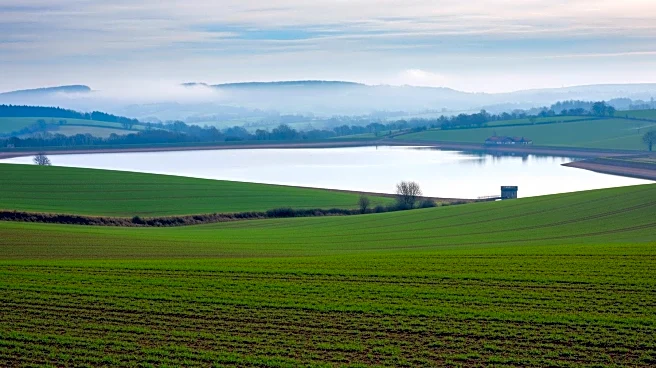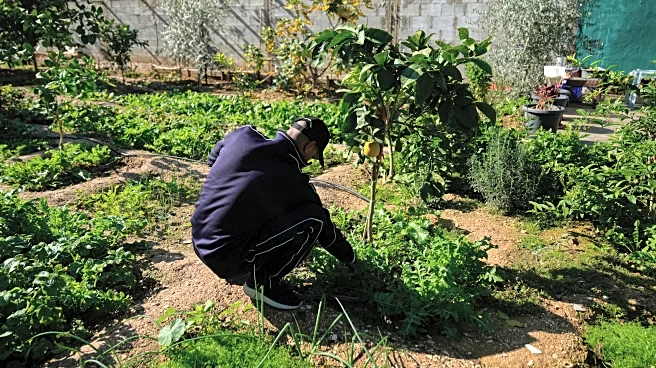What's Happening?
Iraq's Ministry of Water Resources has reported that recent rainfall has added 250 million cubic meters of water to the country's national system. This significant increase in water storage is expected to enhance dam storage and support winter agriculture,
particularly dryland farming and wheat production. The rainfall exceeded seasonal averages in most provinces, contributing to soil stabilization and groundwater recharge.
Why It's Important?
The increased water storage is crucial for Iraq's agricultural sector, which heavily relies on water resources for crop production. This development can improve food security and reduce the country's dependence on irrigation systems. For U.S. agricultural businesses and investors, this could mean potential opportunities for collaboration and investment in Iraq's agricultural infrastructure and technology.
What's Next?
Iraq's government may continue to focus on improving water management and agricultural practices to sustain the benefits of the recent rainfall. This could involve investing in modern irrigation systems and technologies to enhance crop yields. Additionally, international partnerships and investments may be sought to further develop Iraq's agricultural sector.
Beyond the Headlines
The rainfall's impact on Iraq's agriculture could also have social and economic implications, such as reducing rural poverty and improving livelihoods. By stabilizing food production, Iraq can work towards achieving greater economic stability and resilience against future climate challenges.














